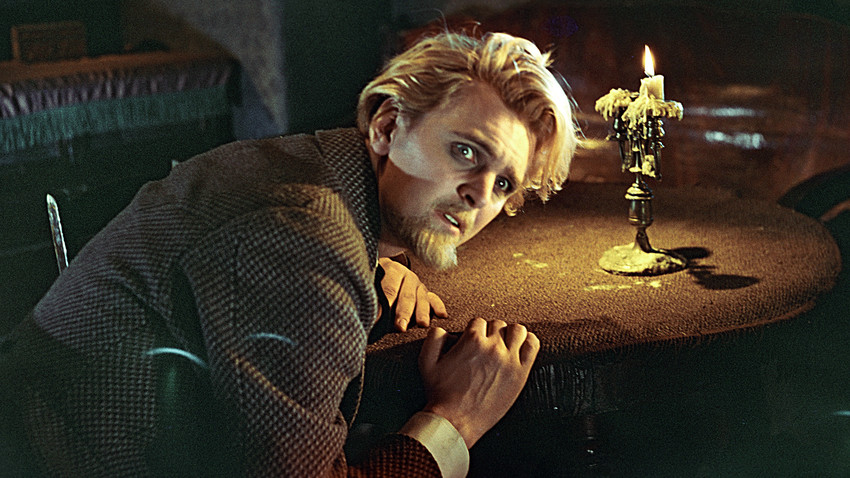
Yury Yakovlev, a Soviet-Russian actor, as Prince Myshkin on the location of the movie "The Idiot" (1958).
Sputnik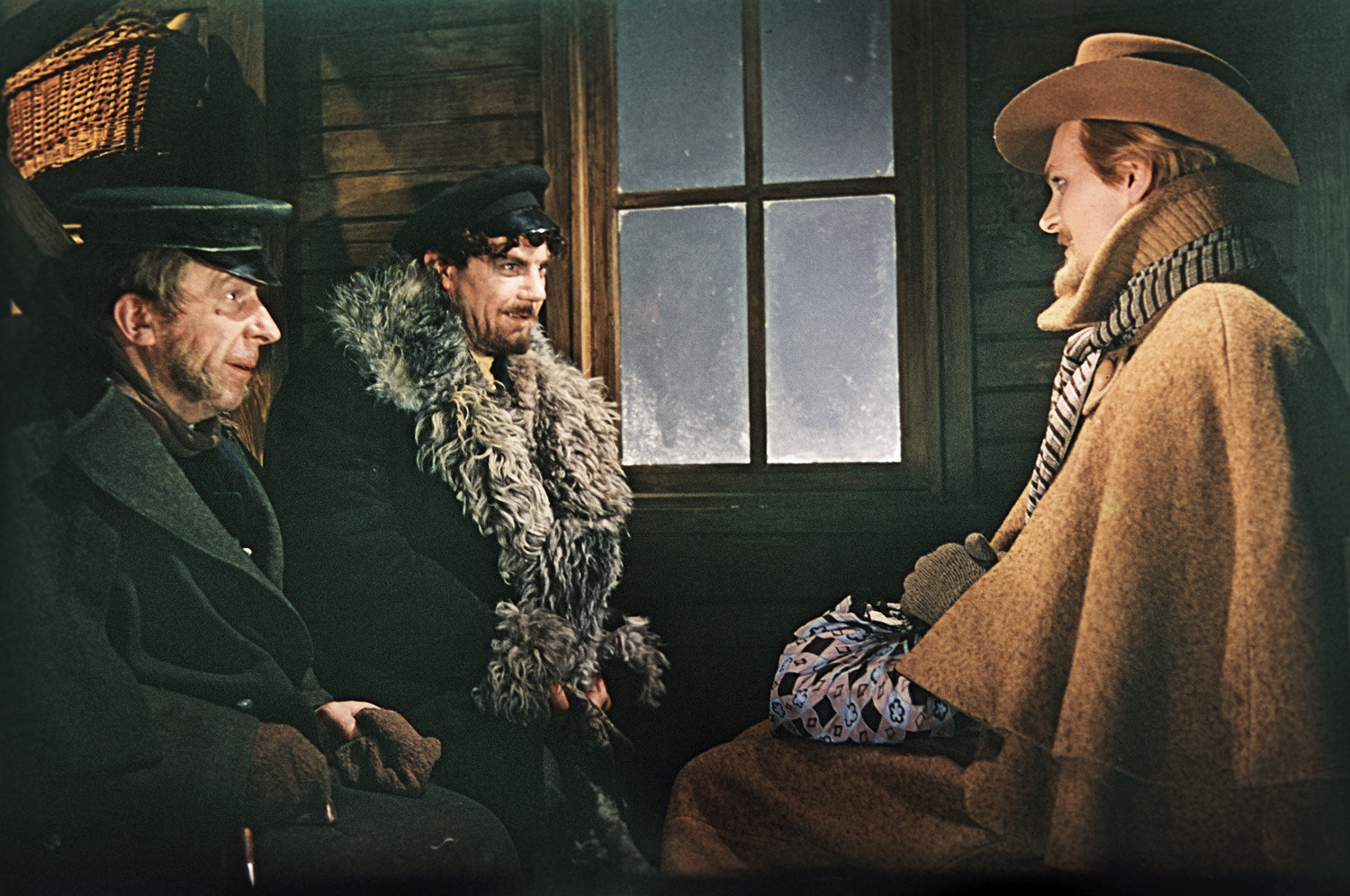
"The Idiot" (1958) - a scene where Prince Myshkin arrives in Russia from Switzerland, where he had been treated from epilepsy.
SputnikThe novel’s protagonist Prince Lev Myshkin is an ideal man. “Dostoyevsky’s idea was to portray a perfect man, full of sympathy for everyone and able to understand everyone in the world of evil, filthy people,” the Polka website explains. In the writer’s blueprints Dostoyevsky refers to Myshkin as “Prince Christ,” and he is indeed Christ-like: full of love and forgiveness, with no touch of anger.
People around him, however, take Myshkin for an imbecile – an idiot (he does have some medical problems). His good will rarely seems to pay off and, to avoid spoilers, let’s say that the ending is not exactly a happy one.
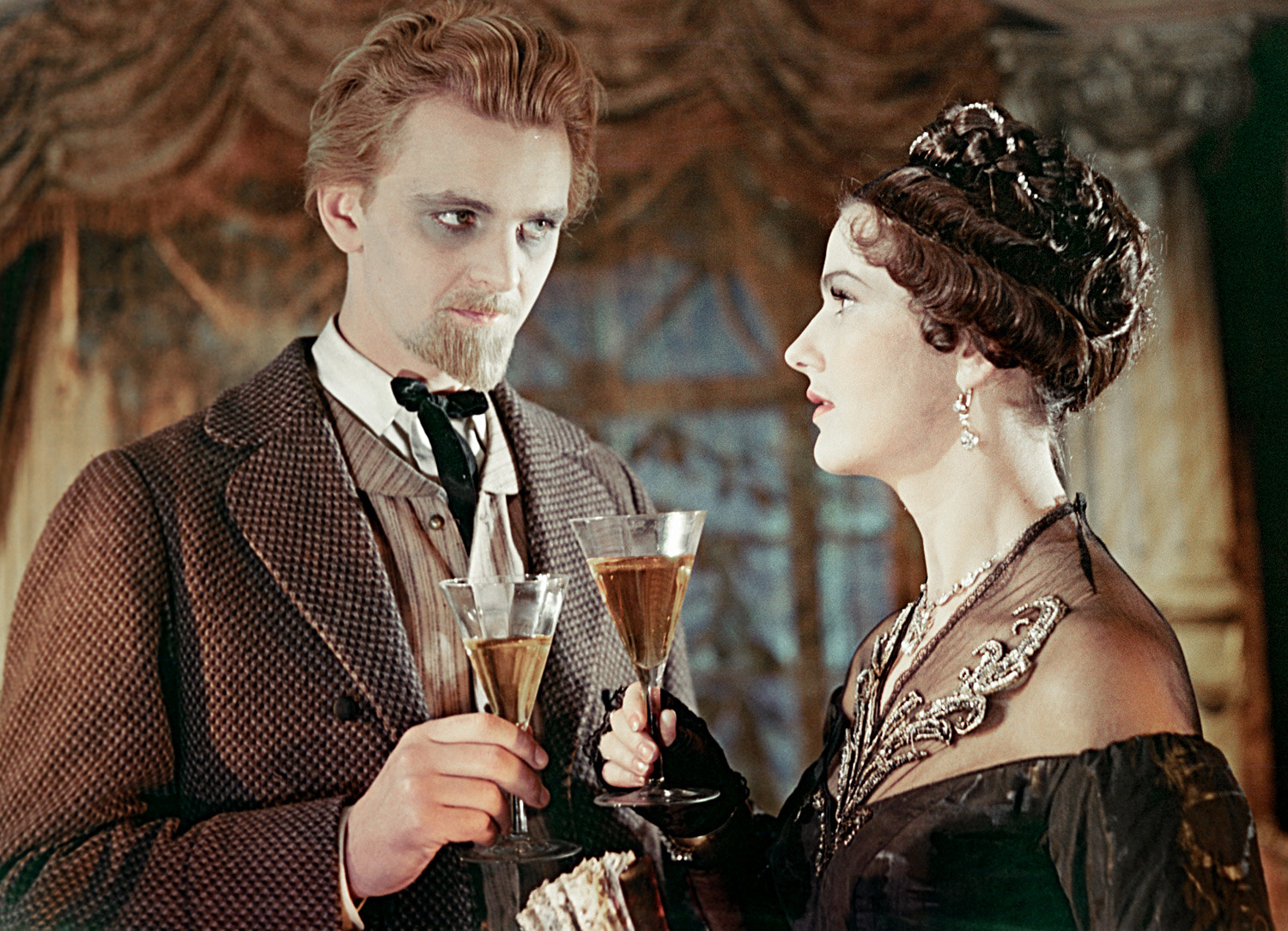
Actors Yury Yakovlev as Prince Myshkin, and Yulia Borisova as Nastasya Filippovna in the film "Idiot" (1958).
B. Kolesnikov/SputnikAs usual, the author brings out the deepest, mystical side of his characters. “All the faces are bright and colorful, illuminated by some electrical light that makes them shine supernaturally and you want to look deeper into them,” Apollon Maykov, a
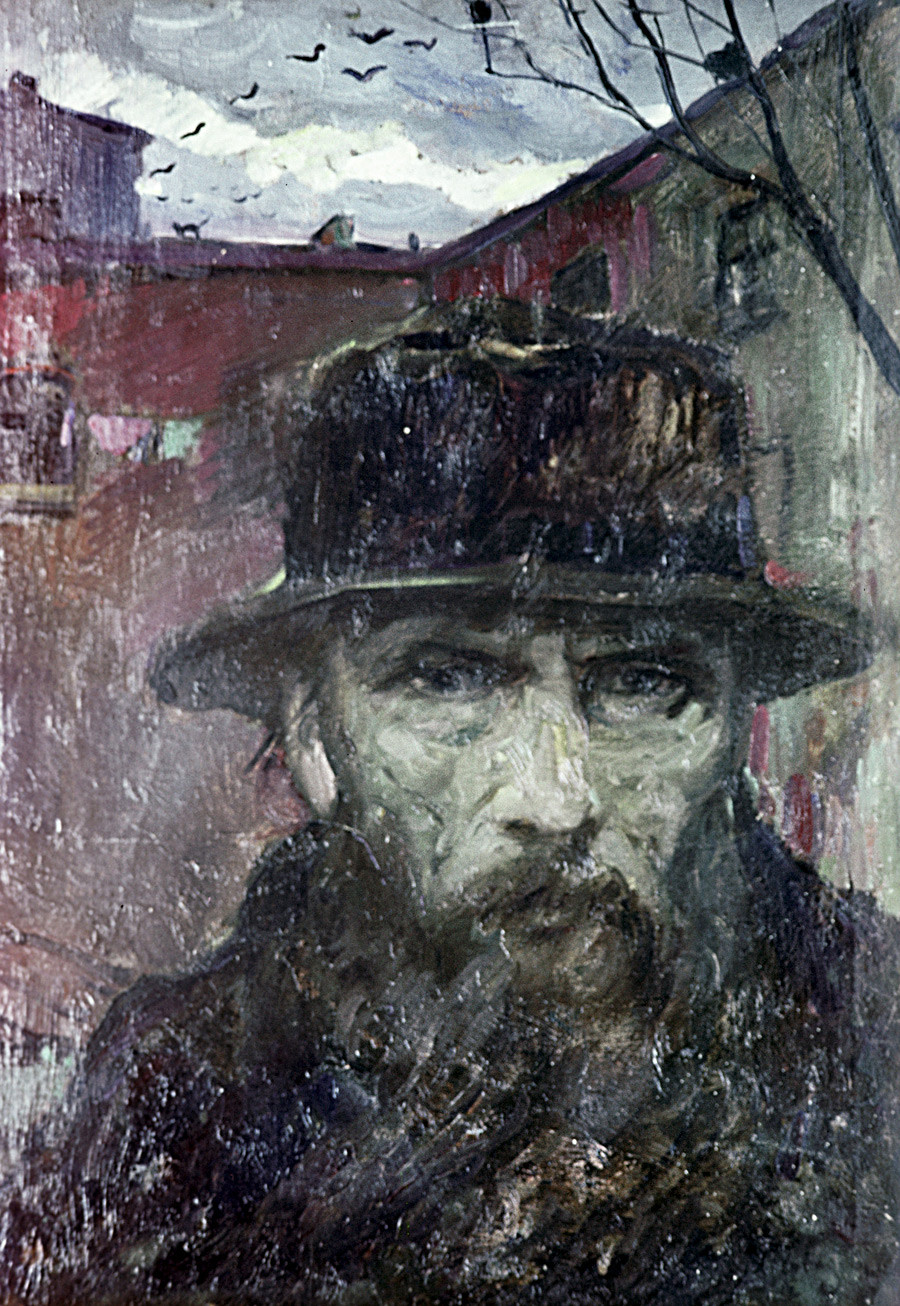
Reproduction of the Fyodor M. Dostoevsky painting by Ilya Glazunov.
SputnikWhile working on The Idiot, Dostoyevsky had to cut the story loose. At first, the plan was to write a book about a rogue eventually finding God – but then the author changed his mind and dedicated his novel to wondering if the Christian ideal – embodied by Myshkin – is even desirable in the modern world.
The author had to be as close to the reality as possible – so he was writing without a determined ending on his mind, just proposing circumstances and writing down how the heroes would react in accordance to their nature. This wasn’t easy.
“My head was in a whirl. It’s a wonder I did not go out of my mind,” Dostoyevsky explained to his friend in a letter. And the ending – again, no spoilers – must have been very hard on the author.
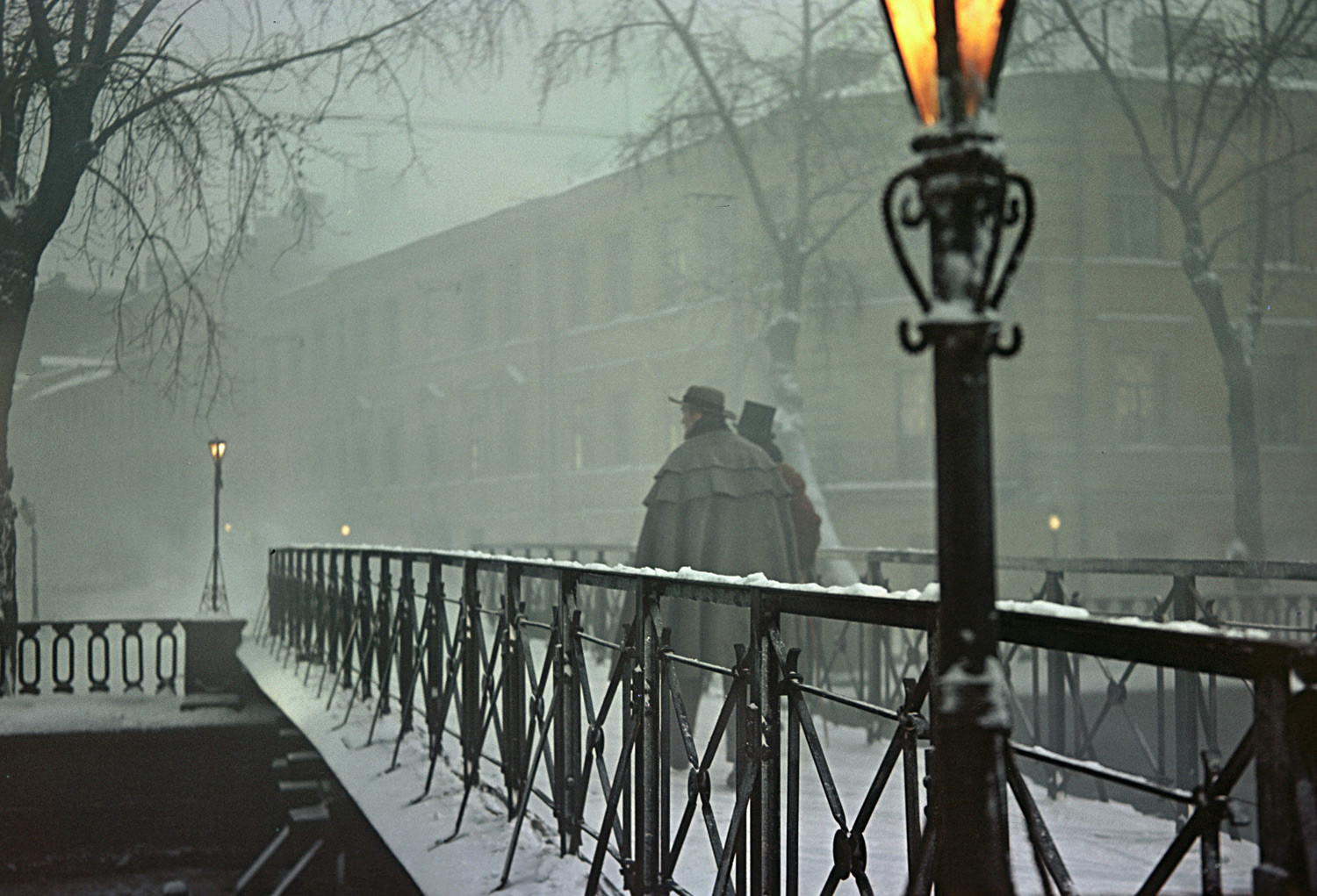
The streets of St. Petersburg as portrayed in the movie "The Idiot".
Sputnik“Dostoyevsky was writing The Idiotwhile living abroad,” reads an article from the Arzamas website dedicated to the author’s secrets. “So he was afraid of being out of touch with the Motherland, wanted for the book to become of current interest. He was reading all Russian newspapers, paying particular attention to the ‘Breaking News’ section.” Thus, in case you wanted to know about 19th century Russia – The Idiot is a good reference point.
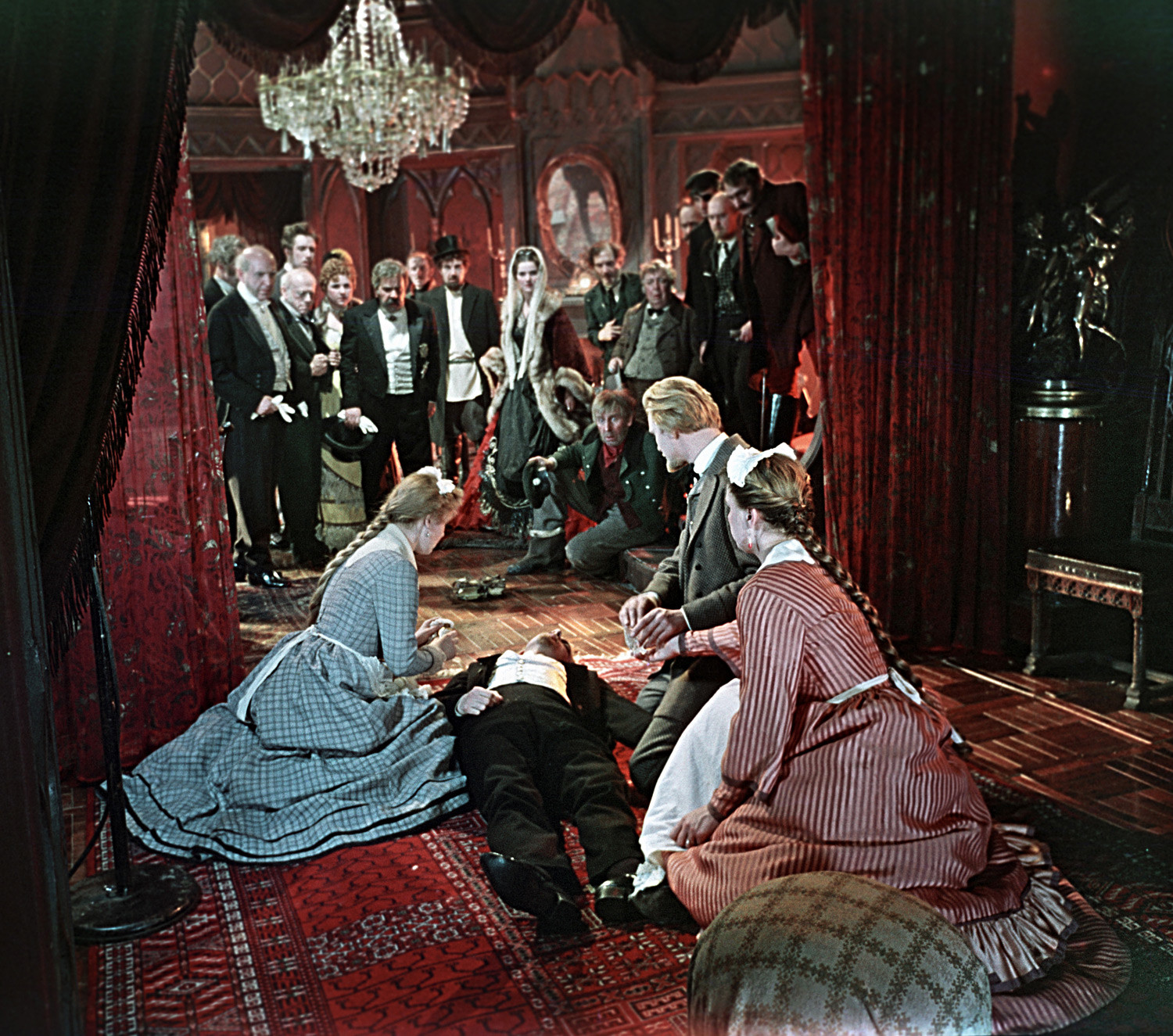
A scene from "The Idiot" film (1958). Spoiler alert: the lying man is not Prince Myshkin.
SputnikIn one of the first chapters, Prince Myshkin tells a story of a man sentenced to death. “His three descriptions of the last moments of a condemned man count among the most thrilling in literature, all the more so because we know they were not made up,” Professor of the Arts and Humanities at Northwestern University Gary Saul Morson wrote in his article on The Idiot.
Indeed, Dostoyevsky
Myshkin’s words on a condemned man are particularly powerful, delivered by a man who knew what he was talking about. It would be a shame to miss such a stunning scene.
Dostoyevsky's literary power is beyond imaginable - just take a look at the list of writers and philosophers who confess that Fyodor Mikhailovich influenced them greatly.
If using any of Russia Beyond's content, partly or in full, always provide an active hyperlink to the original material.
Subscribe
to our newsletter!
Get the week's best stories straight to your inbox